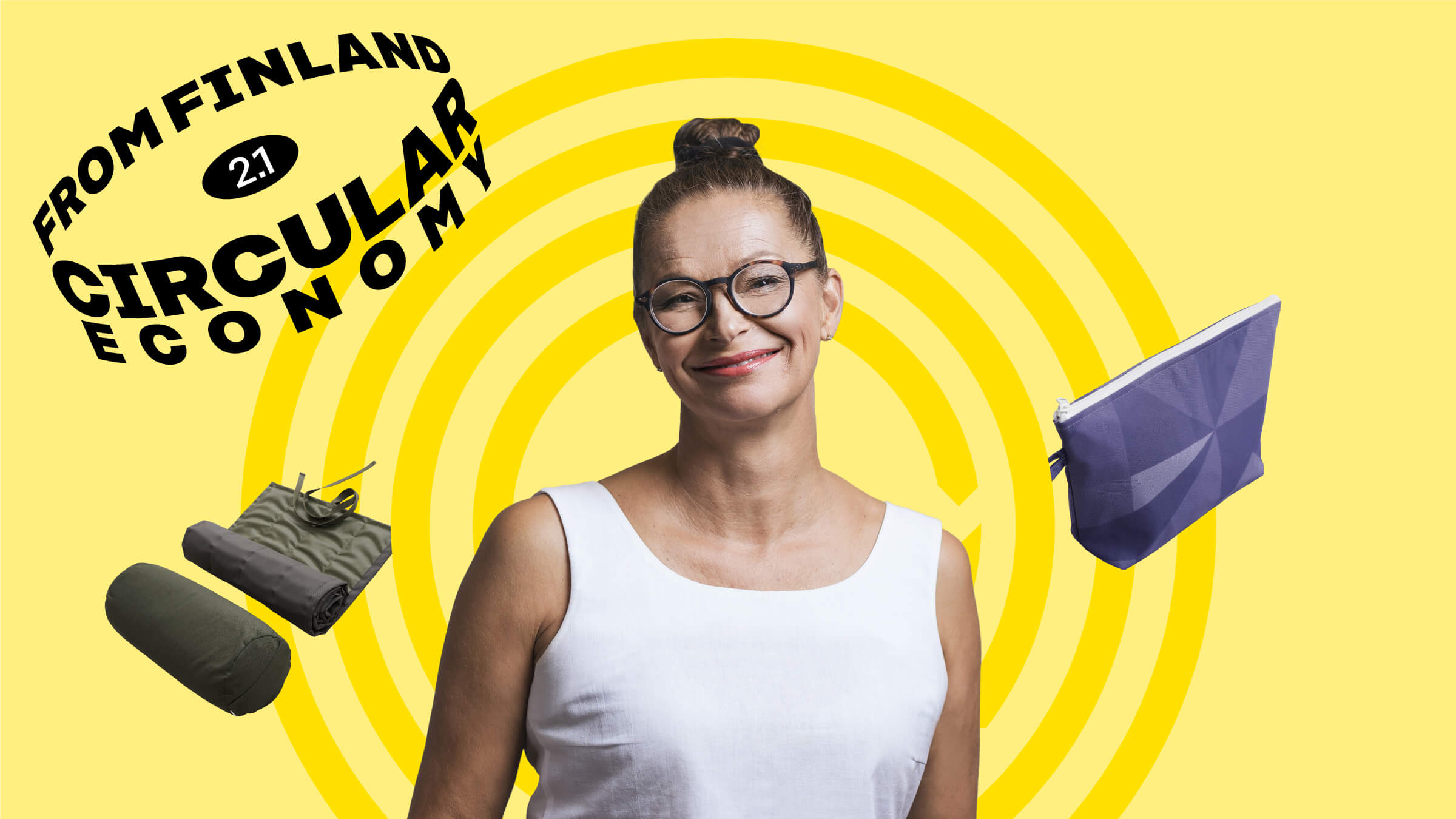“Globe Hope originated from my world-weariness. Fast fashion chains arrived in Finland at the start of the 21st century, churning out affordable but unethically produced clothes that were of a poor quality. I was worried about the increasing amounts of waste and consumption.
I already had a company in the textiles sector, but I wanted to do something to promote more efficient recycling of the material that already existed. I founded Globe Hope in 2003.
Globe Hope is a sustainable fashion company that sells bags, clothes and accessories made of recycled and surplus materials. For example, we use the safety belts from cars and surplus leather from leather factories. Our first product was an evening bag made from a rubber boot.
In two decades, Globe Hope has developed from a marginal brand into an established design brand with its business model based on the circular economy. Our products are sold in 27 shops and through 10 online stores in Finland. We design and price the products for average consumers because we want to offer a responsible alternative for everyone.
In 2017, we launched a Zero Waste service for textiles no longer used by companies. We receive discarded products such as workwear from company customers and make them into new products. We also produce textile sustainability reports with which companies can report the carbon dioxide emissions produced and the amount of water used in their textile production. Although the change in the way of thinking has taken a long time, companies are now increasingly willing to develop responsible and resource-efficient business and communicate about it.
Big changes take time. In the beginning, I was convinced that other operators in the textile industry would soon change over to the circular economy. However, our first collection met with a great deal of disapproval in the sector. It was considered sacrilege to talk about the shocking environmental impacts of the textile industry. Today, consumer awareness is at a completely different level from the first years of the century.
Globe Hope is a circular economy pioneer and will continue to be so. We invest in the development of the Zero Waste service for textiles that are no longer used and pilot new ways to use recycled textiles with our diverse collaboration network.”










Suosittelemme
Vielä yksi